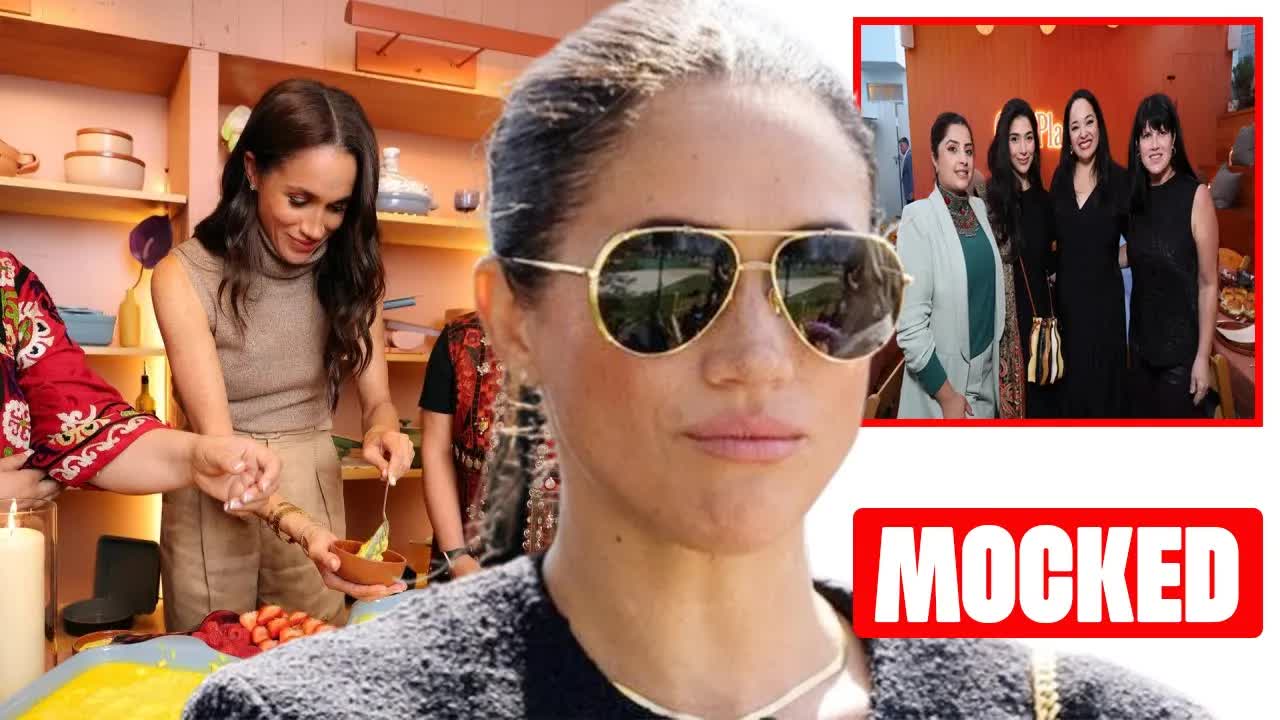Must Read
### Meghan Markle’s Missteps: A Closer Look at Her Claims and Controversies
In a recent series of events, Meghan Markle has found herself under scrutiny for her comments regarding Afghan Muslims and American holidays.
The former royal, who has often touted her academic background in international relations, seems to have missed the mark when it comes to understanding the cultural sensitivities of newly immigrated communities.
Supporters of Markle, often referred to as her “sugar squad,” argue that her educational credentials are the reason behind the British royal family's alleged disdain for her.
They claim that her impressive intellect is simply too much for them to handle.
However, critics point out that her claims of expertise may not hold up under scrutiny, especially given her own admission of failure in the Foreign Service exam.
Despite her double major in theatre and international relations, Markle's attempts at diplomacy seem to falter.
Her uncle, who was actively serving in the Foreign Service, reportedly tried to assist her in preparing for the exam, but to no avail.
This raises questions about her actual grasp of the subject matter she claims to understand so well.
While she has certainly made a name for herself in Hollywood, her career path is peppered with roles that hardly showcase her range as an actress.
From minor appearances in shows like “90210” and “General Hospital” to forgettable cameos, Markle's acting history is more notable for its lack of standout performances than for any significant achievements.
Her education, particularly her degree in theatre, has led some to jest that she is somehow qualified to lecture on global diplomacy.
It seems almost ironic that someone with such a background would miss the opportunity to learn even the most basic aspects of her adopted country, like its national anthem—a task that many children accomplish by the time they reach preschool.
In stark contrast, the late Queen Elizabeth II, who may not have had formal training in international relations, was surrounded by seasoned diplomats throughout her reign.
The queen's hands-on experience in global affairs, particularly during her voluntary service in World War II, highlights a dedication that some feel Markle lacks.
Markle's ability to navigate her public persona has often been questioned.
Critics argue that her focus appears to be more about maintaining a certain image rather than engaging with the responsibilities that come with her former royal status.
Her tendency to complain about not receiving compensation for her royal duties further complicates her narrative.
Moreover, her grasp of “soft power”—a concept vital to her role in the royal family—seems tenuous at best.
If Markle truly understood this principle, she might have approached her situation with a different mindset, opting for collaboration rather than conflict.
The question remains: Does Markle genuinely possess the knowledge and skills necessary for understanding complex international dynamics?
Or is her talent more aligned with crafting compelling narratives to sway public opinion?
As Markle continues to navigate her post-royal life, her actions suggest a pattern of distraction from deeper issues.
Whether it's through emotional storytelling or highlighting her struggles, she appears to be playing a long game that often overlooks the very basics of diplomacy and cultural awareness.
In the end, while she may not fit the traditional mold of a royal, Meghan Markle's journey is a testament to the complexities of identity, expectation, and the ever-watchful eye of public perception.
As she forges ahead, the world will be watching closely to see how her story unfolds.






























